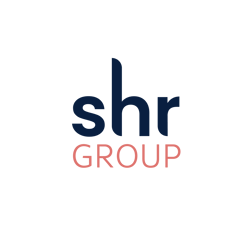Automation, artificial intelligence, machine learning – all are buzzwords that are admittedly hard to differentiate from each other but play an important part in running your hotel efficiently and ensuring guest satisfaction. These may seem like future advancements that you can ignore for the time being, but the fact is they’re working for you today. Understanding how they play a part in your everyday operations can put you a step ahead of the competition.
On a recent webinar hosted by ROOMDEX, executives from several leading hospitality technology suppliers were able to break down these terms in easy to understand language. Let’s recap what they had to say.
As Hoteliers, What is AI Doing For You?
Machine learning and artificial intelligence both deal with a computer’s ability to process large amounts of data in a short period of time and then action that data. Often, this is done to save humans from spending a great deal of time processing calculations and determining a result. After processing the data and making similar calculations over and over again, machines can begin to “learn,” or adjust future outputs based on past outputs.
For example, ROOMDEX – a dynamic upgrade pricing tool – takes several factors into account when displaying the price of a room upgrade to a guest. Jos Schaap, founder of ROOMDEX, says the idea was to create a tool that eliminates the need for hotel staff to search through multiple data sets – supply, demand, prior booking history, etc. – to determine what to charge for a room upgrade, or for early or late check-out.
“When we calculate a room upgrade offer, it's not static,” Schaap said. “We look at what the guests paid previously, what the current reservation price is, what type of reservation it is. Is it a family or a business traveler? Is it a weekday or a weekend? All of those things have something to do with price sensitivity and have an effect on what a guest is willing to pay for an upgrade.”
Nicole Adair, Director of Revenue Management Services at SHR, said automation is prevalent in today’s revenue systems.
“There are some revenue management systems that are mostly automation driven, just utilizing business rules to execute decisions,” she said. “However, true RMSs utilize various types of AI and machine learning, whether that's neural networks or reinforcement learning, to process huge volumes of data that hotels have. It could be the hotel’s internal data, outside data sources from rate shoppers, guest reviews, web-search traffic, etc. The systems apply the AI to actually learn from that data, generate decisions, and then learn from the results of those decisions to forecast and make the right recommendations. Then they also automate the distribution of those recommendations and those decisions.”
How AI Helps Small Hotels Compete with Chains
Some times, the panelists said, independent or smaller hotels think they don’t benefit from artificial intelligence as much as the larger portfolios or chains. But the fact of matter is data can level the playing field.
“With cloud technology, suppliers have the capability of collecting data not from one hotel but from thousands of hotels that are part of that platform, and then create some statistical significance that can be reapplied to these customers individually,” Schaap said.
Archie Winesett, associate VP of sales at Triptrease, said part of the advantage of working with a business that's using AI is that smaller properties can leverage the technology to compete with larger chains. “A boutique hotel or guesthouse or bed and breakfast can leverage the scale of thousands of hotels to help make better decisions about the value of your hotel,” he said.
How Automation is Saving Hoteliers Time and Resources
Perhaps the main goal of automation is to translate machine functionality into operational efficiencies, said Priya Rajamani, client service and quality manager at StayNTouch, a cloud-based PMS.
“The objective for us is to replicate using automation some of these more repetitive tasks that a staff member would typically do,” she said. “For instance, when we do preference-based auto room assignment, this is something that we are able to automate and replicate for front-desk check-ins.”
Rajamani said the current environment calls for hotel managers to be more accountable and keep their eyes on the bottom line. “Introducing these operational efficiencies go a long way in making it possible for them,” she said. “And from a guest point of view, it gives them the ease of use and the speed of the process itself, which ultimately enhances their guest experience. It’s a win-win overall.”
Covid Amplifies Automation Needs for Both Guest and Hotel
In today’s environment, which looks much different than this same time last year, what stands out most about machine learning is the learning part. SHR’s Adair said, with only a few tweaks to the algorithm, revenue systems were able to adjust how they weigh historical data vs short-term trends.
“Revenue managers, we're really having to divorce ourselves from this concept of past seasonality historicals,” she said. “There are still patterns emerging, it’s just more about looking at short-term performance to forecast the short term. You can't forecast a year out from now very effectively because things are changing so fast. But systems are excelling by balancing the timeframe of data and the timeframe to which you're applying that data.”
Adair said COVID has forced a bit of a sea change when it comes to adopting technology. Prior to COVID, when everything was running smoothly, hoteliers may not have felt an impetus to upgrade their technology. But now, implementing some advanced artificial intelligence may set the winners apart from the losers.
“Everyone is having to completely rethink how they're working, how they're making decisions, and it's definitely going to be a big driver of adoption,” she said. “Open APIs are making it a lot easier to implement these systems and have all of your systems across the tech stack work together, and that’s where hoteliers are seeing the benefits.”
by Jason Q. Freed


